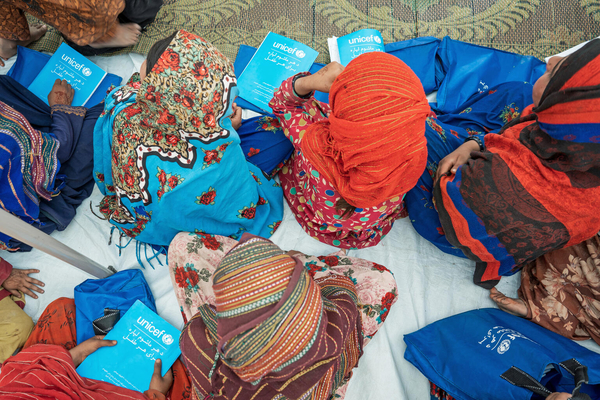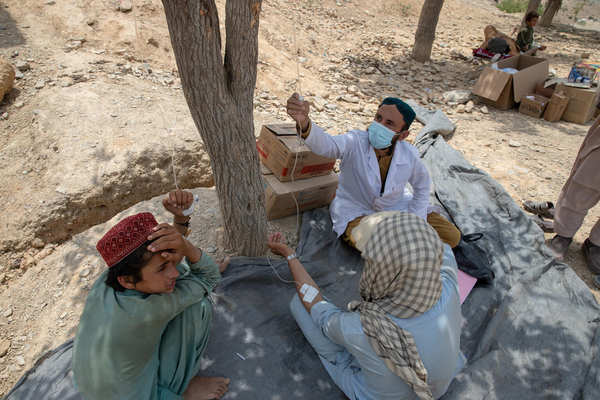MSF does not want to be part of any external system

As operations manager for Afghanistan, Pakistan, Syria, Venezuela and Kenya at Médecins Sans Frontières (MSF), Martine Flokstra has been strongly involved in activities of MSF in Afghanistan the past two years. As representative of a humanitarian NGO, with a keen eye on humanitarian principles like humanity, neutrality, independence and impartiality, KUNO asked her to reflect on the KUNO booklet: “Balancing between ambition and wishful thinking: Learning from 20 years of Dutch involvement in Afghanistan”.
Martine Flokstra: “what is valuable about this study is that we looked back together from our own specific lenses. It is good to see those people side by side.” However, she is still highly critical of the 3D approach, where Defence, Diplomacy and Development are integrated: “When military objectives and humanitarian objectives are combined, this blurs opposite objectives and gives a wrong perception to the communities and all actors involved. This could bring severe security risks for our teams deployed in conflict settings.”
The 3D approach
Martine explained that the Triple Nexus / 3D approach was problematic for MSF in Afghanistan, as it is in all the countries where they work. “The moment that humanitarian work is linked to Defence and Diplomacy in a country like Afghanistan, you are treading a slippery slope”. This is because of two reasons. Firstly, humanitarian aid simply has different goals than defence and politics. Humanitarian aid is one-dimensionally about the needs of human beings: saving lives and responding to their needs in a crisis situation. Defence and politics are different: they have other objectives. In Afghanistan for instance a political goal like fighting terrorism. Humanitarian aid may never risk to become a tool of defence or politics. Secondly, the safety of humanitarian workers and the continuity of humanitarian aid can only be guaranteed under strict neutrality. The risk of the 3D approach is that all foreign aid workers are seen as part of a country’s army. This perception can be life-threatening to the aid workers.
That a number of other NGOs, such as dual mandate organisations, take a different stance on the nexus discussion or the 3D approach, does not surprise her much. The trend of the politicisation of donor-money has resulted in all donors having made ‘the nexus’ part of their funding. MSF’s revenues are 97% private donors which means they are not dependent on these institutional donors.

During our research, several interviewees presented the ‘civil assessments’ performed on Afghanistan as an interesting good practice. During these civil assessments military, policy makers from ministries and NGO-representatives made a context analyses on Afghanistan together. Why has MSF always kept a great distance from such joint analyses?
“This can be explained by the way MSF uses the impartiality principle: intervening where the needs are highest is most important.” Martine explained that chances are that if you do a context analysis from other interests (political or military), you end up with other locations to intervene. For example, military assessments on where aid is needed may end up in different places as they are fundamentally engaged in counter-terrorism operations.
Naturally, MSF is willing to explain their choices and inform partners ad hoc on the issues they consider important, but MSF does not want to be part of an external system. We exchange with all actors but are not part of what the different actors, involved in a conflict situation, aim to achieve. However, Martine stressed that you do not have to be part of an external system to be able to engage with other actors. Besides, participating in such a civilian assessment could contribute to the perception that an aid organisation is linked to the military; in other words: “you do not want to be seen as part of an armed or political actor in any context”.
In the past 20 years, Afghanistan proved (again) to be a complex context for humanitarian NGOs to operate in. Dutch humanitarian, political, military and development organisations were all present, with objectives that sometimes overlapped, but also contradicted each other. KUNO spoke to many different actors that were involved in Afghanistan, and combined these in a booklet. This can be found here.
